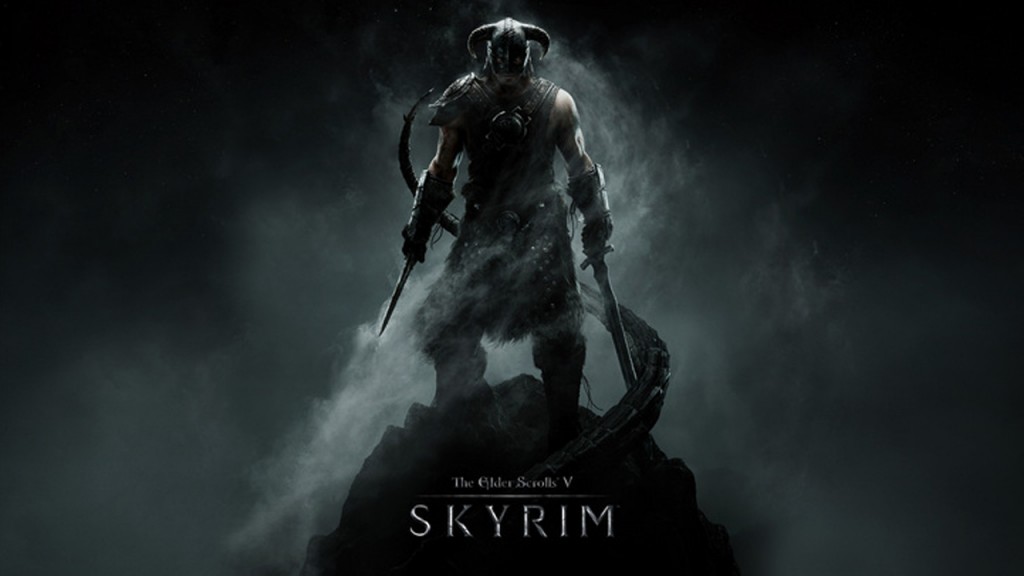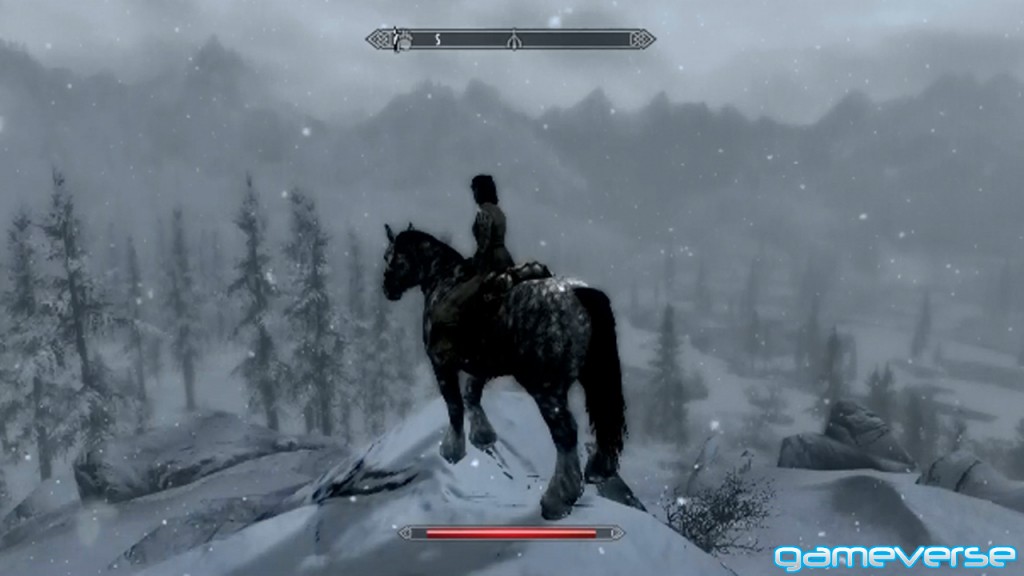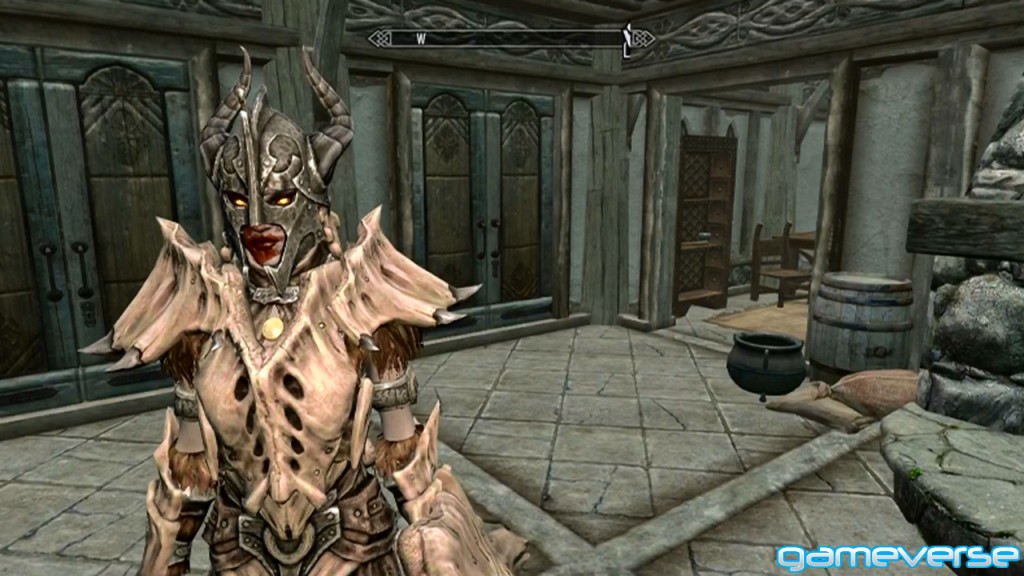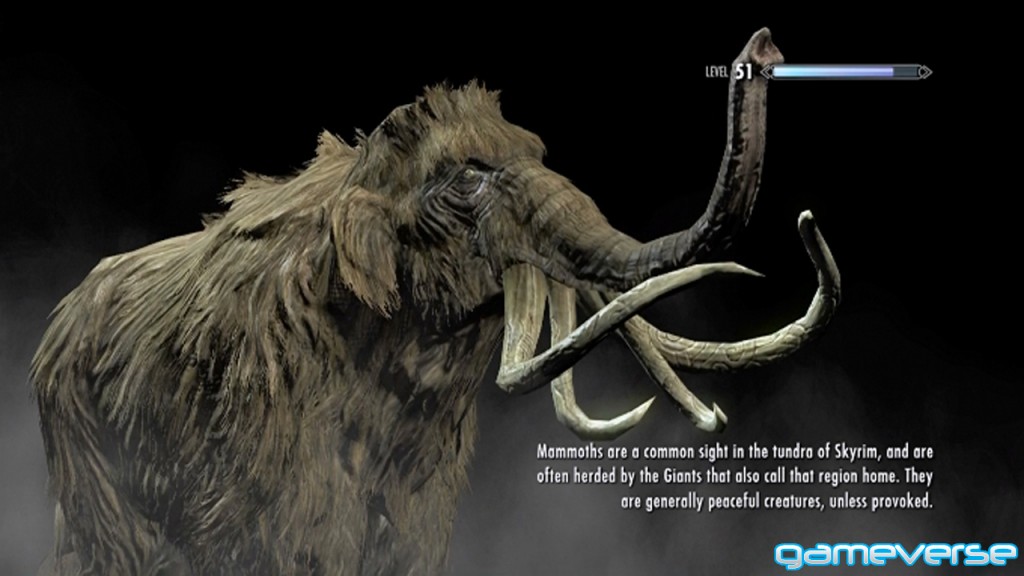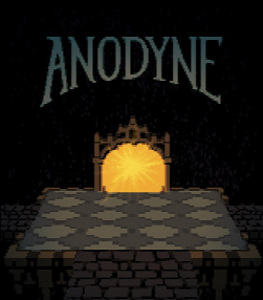Continuing where I left off in the first part of this series, I am now more than 100 hours into this game including the add-ons, Dawnguard and Hearthfire. Very few games today can do what Skyrim has done, and so it should be commended. Including the DLC, the investment of $85 is worth every penny. Many games today fail at living up to their hype, making an unequal balance between their hype, cost, and time invested. The first week after release, a game’s hype falls dramatically usually due to a campaign being too short, or not rewarding the player effectively. Every game has a downfall, but because of Skyrim’s length and depth, it took longer to discover it.
Quests were an interesting mix, the open-world formula made it easy to forget about the main storyline. Part of the reason is because each quest, or series of quests, has its own revolving stories; investigating a burned down house leads to killing a master vampire, joining either the Stormcloaks or the Imperials leads to capturing the opposing faction’s capital city, etc.
For obvious reasons, the main quest of discovering that you are the Dragonborn and what that means is the most powerful. After meeting the Greybeards and attempting to retrieve an old horn for them, you learn of the long forgotten group, “The Blades”, who were actually dragon slayers. And along with this, dragons aren’t just returning, but are coming back to life. Alduin, an ancient dragon is able to resurrect other dragons, and while anyone can kill a dragon, only a Dragonborn can absorb the soul of a dragon, preventing them from being able to return from the dead.
Not only do the various quests make the Skyrim world exciting and unique, the variety of character types makes each experience a little different. Picking up the role of a powerful mage, I focused heavily into destruction magic. I wanted to kill first and ask questions later. This is where I found the “Stagger” perk incredibly handy. When dual-casting a spell, overcharging it into a more powerful version, staggers any opponent for a moment. With reduced magicka costs to my spells, my goal was to make sure the enemy was dead before I ran out of magic. While my focus was on destruction magic, there are supplemental skill trees that are worth investing into.
Enchanting is essential no matter the play style, eventually being able to enchant an item with two different stats made it possible for me to be able to cast any spell from any two schools of magic for free. This combination with stagger made the game extremely easy. I could now stagger any opponent, casting master level destruction spells for free. Increasing the difficulty helped balance the game more, but proved how powerful this setup became.
Blacksmithing for a magic user is pointless, but I wanted to see Dragon Armor on my character. While a thief or warrior would benefit from upgrading armors or weapons, a mage’s only consideration is its use of doubling an item’s value. Lockpicking includes a perk which increases your chance of finding a magical item by 50%, in addition to the prior perk which increases gold find, I was able to find gear upgrades faster than working blacksmithing to learn how to make them.
For those of us obsessed with money, the speech skill has many benefits including being able to increase merchant’s bartering gold by 1500, or persuading guards to look the other way. The first is especially useful as I would bankrupt every merchant I could find, selling the loot from my latest run. The latter is quite handy for the achievement of obtaining 1000 gold bounty in all nine holds. Along with selling everything, I enjoyed the perk in pickpocketing that increased my carry limit by 100. Having a party member carry items for me, I often spent more time selling than fighting.
It was surprising to watch NPC’s interact with each other. Vilkas can train you in two-handed weapon combat, but you can also discover this listening to him teach another companion how to fight with a two-handed weapon. While what is said wouldn’t help you be a better fighter (in the game), in a real world setting the logic rings true. “Balance is key with two-handed weapons; you need to be able to counter the weight of the swing.”
The story is rich and powerful, and I found myself surprised many times. Knowing how Elder Scrolls games go, I knew there had to be something revolving around the use of a scroll, but it wasn’t until the dragon resurrection that I realized what was going on. This story and the free-exploration formula is why Skyrim did so well for weeks after its release, in addition to the fame for being an Elder Scrolls game. From developing your character with near limitless choices, brilliant design and direction, and the amazing story, it is no wonder why this game did so well. I highly recommend it.


